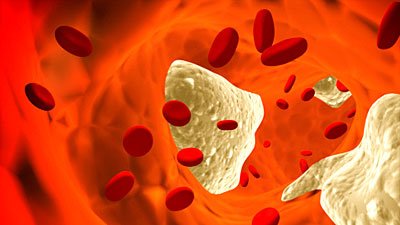According to a medical team at Cleveland Clinic, good cholesterol, or HDL, also has a nasty side that can increase the risk of heart attacks.
HDL (high-density lipoprotein) cholesterol normally helps to keep arteries clear and is good for heart health.
But the team at the Cleveland Clinic showed it can become abnormal and lead to blocked blood vessels.
Doctors say people should still eat healthily, but that the good cholesterol story is a more complex tale than previously thought.
Low-density lipoprotein (LDL) cholesterol is “bad” because it is deposited in the walls of arteries and causes hard plaques to build up that can cause blockages, resulting in heart attacks and stroke.
HDL cholesterol is “good” because the cholesterol is instead shipped to the liver.

The evidence shows that having a high ratio of good to bad cholesterol is good for health.
However, researchers at the Cleveland Clinic say trials aimed at boosting levels of HDL have “not been successful” and the role of good cholesterol is clearly more complicated.
In their study, published in the journal Nature Medicine, doctors showed how HDL cholesterol could become abnormal.
One of the researchers, Dr. Stanley Hazen, said HDL cholesterol was being modified in the walls of the artery: “In the artery walls it is acting very differently to in the circulation. It can become dysfunctional, and contributes to the development of heart disease.”
Small quantities of the abnormal HDL seep back into the bloodstream and this can be detected.
Tests on 627 patients showed that levels of abnormal HDL in the blood could be used to predict the risk of cardiovascular disease.
Dr. Stanley Hazen added: “This data does not change the message of eat healthily.”
Instead, he said the findings would be used to develop new tests for abnormal HDL cholesterol and research on drugs to help block its formation.
